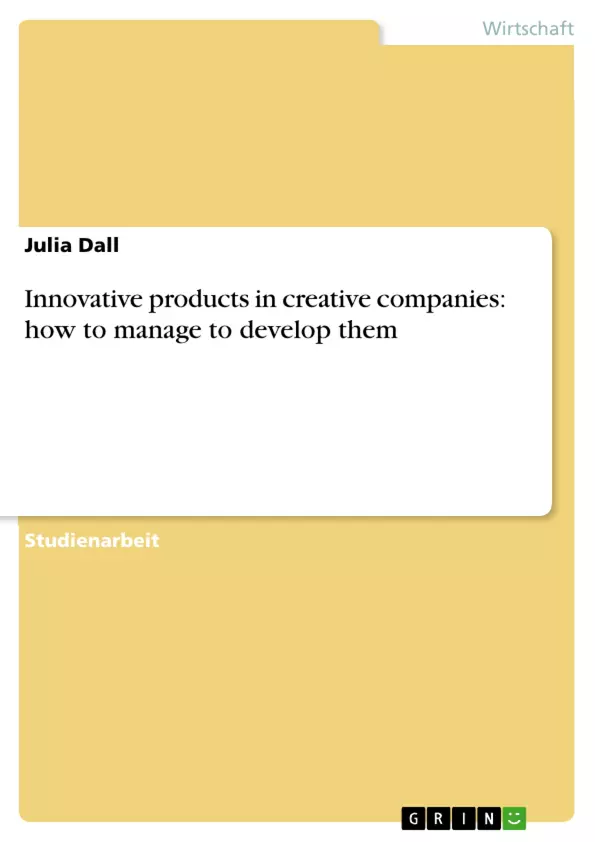Environment, both social and institutional, plays nearly the main part in establishment of creativity in the company. It exists on every enterprise and can serve as the base for spreading the ideas and attitudes to work among the staff, especially in the hands of experienced leaders.
Technology in terms of our topic is an educational element in the system of management. Openness and Diversity represent the collective of the company, when different people, sometimes employees of different positions and statuses are open for communication and equal collaboration in the name of the firm’s progress and prosperity. And of course the main part in creativity is Human Capital. They are part of the environment, they can alter the environment and together in cooperation they can create innovative ideas.
Usually human capital is most flexible and therefore most creative at the time of the company’s start up, when there is no gap between the leaders of the company and the other staff. Leaders think globally and with their own example infect the ordinary staff in close communication with ideas and with the need to innovate. But with the company’s growth, the amount of the staff grows, there appears the middle layer – managers, who become the connecting link between the leaders of the firm and the staff, and the feeling of unity usually weakens and finally disappears.
After analyzing information about how creational the management system of big market players is we found that not every company’s creational environment can fight the crisis of becoming a solid corporation.
Information technology in its turn is the field which has more opportunities for innovation and creation than any other due to the fact that it is a new and still developing sphere. That is why we were interested to study an example of a company dealing with a more traditional field where usually success means to follow a prevailing standard.
Now we can conclude that creative management can be achieved with the help of two nearly opposite and a little bit contradictive approaches. And we can call them Western-American approach and Eastern-Japanese one.
Both have the right to exist and be implemented, both can bring impressive results. The difference between them is in where to put them into practice. Each cultural and geographical environment has the prerequisites to chose one or another depending on which is closer to their mentality: the examples of Google Way or the Toyota Way.
Inhaltsverzeichnis
- Zielsetzung
- Einleitung
- Hauptteil
- Kreativität
- Natur und Ursprung der Kreativität
- Kreativität im Unternehmen
- Kreative Mitarbeiter und kreative Führungskräfte als Teil der kreativen Unternehmenskultur
- Kreatives Management und Möglichkeiten seiner Anwendung
- Google Fakten
- Position und Erfolge
- Kreative Politik und ihre Umsetzung
- Toyota Fakten
- Position und Erfolge
- Kreation in der Organisationsstruktur
- Kreativität
- Schlussfolgerung
Zielsetzung und Themenschwerpunkte
Diese Arbeit beleuchtet das Konzept der Kreativität im Allgemeinen und im Bereich der Wirtschaftstätigkeit. Sie definiert den Begriff des kreativen Managements und der kreativen Unternehmenskultur und untersucht deren Einfluss auf den Managementprozess eines Unternehmens. Darüber hinaus strebt sie danach, Schlussfolgerungen zu ziehen über die Art von Unternehmen, die die Kreativität ihrer Mitarbeiter am erfolgreichsten nutzen, welche Geschäftsbereiche und Märkte Kreativität am meisten benötigen und verwenden, sowie über den Prozess des "Crowdsourcing" und dessen Organisation in Unternehmen unterschiedlicher Art.
- Untersuchung der Rolle von Kreativität im Managementprozess
- Analyse des Einflusses von kreativen Mitarbeitern, Führungskräften und Unternehmenskultur auf Innovation
- Beurteilung der Bedeutung von Kreativität in verschiedenen Geschäftsbereichen und Märkten
- Erörterung der Organisation und Anwendung von "Crowdsourcing" in Unternehmen
- Vergleich von Fallbeispielen aus unterschiedlichen Unternehmenskulturen
Zusammenfassung der Kapitel
- Zielsetzung: Definiert die Forschungsziele und stellt die zentrale Fragestellung der Arbeit vor.
- Einleitung: Führt den Leser in das Thema Kreativität im Management ein, beleuchtet die historische Bedeutung von Innovation und stellt die Frage nach dem Ursprung der Kreativität in Unternehmen.
- Hauptteil:
- Kreativität: Definiert Kreativität und erforscht ihre Entstehung, ihre Bedeutung im Geschäftskontext und die Rolle von kreativen Mitarbeitern und Führungskräften in der Unternehmenskultur.
- Google Fakten: Analysiert die Positionierung und Erfolge von Google als ein Unternehmen, das Kreativität als Kernstück seiner Organisationsstruktur und Managementphilosophie betrachtet.
- Toyota Fakten: Untersucht die Positionierung und Erfolge von Toyota als ein Unternehmen, das Kreativität in seine Organisationsstruktur integriert.
Schlüsselwörter
Kreativität, Management, Unternehmenskultur, Innovation, Crowdsourcing, Google, Toyota, Mitarbeiter, Führungskräfte, Organisationsstruktur, Geschäftsbereiche, Markt, Fallbeispiel
Häufig gestellte Fragen
Was ist der Unterschied zwischen dem „Google Way“ und dem „Toyota Way“?
Der „Google Way“ steht für einen westlich-amerikanischen Ansatz mit Fokus auf maximale Offenheit, während der „Toyota Way“ einen östlich-japanischen Ansatz der kontinuierlichen Verbesserung (Kaizen) verfolgt.
Welche Rolle spielt Humankapital für Innovationen?
Humankapital ist die Hauptquelle für Kreativität; Mitarbeiter können das Umfeld verändern und durch Kooperation innovative Ideen entwickeln.
Was versteht man unter „Crowdsourcing“ im Unternehmen?
Es bezeichnet die Einbindung einer großen Gruppe von Menschen (Mitarbeiter oder Externe), um gemeinsam Lösungen für komplexe Probleme oder neue Produkte zu finden.
Warum sinkt die Kreativität oft mit dem Wachstum eines Unternehmens?
Durch wachsende Hierarchien und Managementebenen geht oft das Gefühl der Einheit und die direkte Kommunikation zwischen Führung und Belegschaft verloren.
Welche Branchen benötigen kreatives Management am meisten?
Insbesondere die Informationstechnologie bietet viele Chancen, aber auch traditionelle Branchen können durch kreative Unternehmenskulturen Krisen besser bewältigen.
- Quote paper
- Julia Dall (Author), 2010, Innovative products in creative companies: how to manage to develop them, Munich, GRIN Verlag, https://www.grin.com/document/183843



